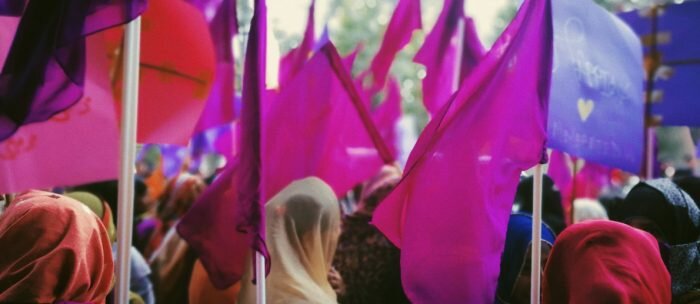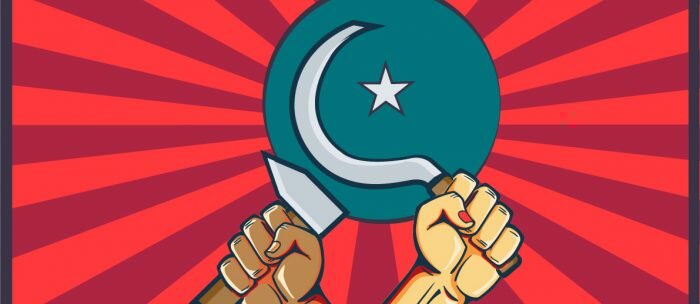
India Scraps Kashmir’s Special Status Amid Statewide Crackdown
Indian has revoked Article 370 of the Constitution that gave special autonomy to Kashmir. What does this mean for Jammu & Kashmir?
Indian Prime Minister Narendra Modi’s government has revoked Article 370 of the Constitution that gave special autonomy to Kashmir. Home Minister Amit Shah told parliament this morning, amid strong opposition by members of the Congress party, that Article 370 will be removed through a presidential order, evoking Article 370(3) that empowers the president to decide the limit of the provisions. Shah also tabled a bill to divide the state into two union territories – Jammu and Kashmir with a legislature and Ladakh without one.
Ironically, the government used power given by Article 370(3) to the president to make Article 370 ineffective. Repealing Article 370 would, otherwise, have required a constitutional amendment under Article 368. This move by the Indian government to render Article 370 ineffective, when approved by the Lok Sabha (lower house), would mean that India’s Constitution gets full applicability in Jammu and Kashmir.
The announcement to repeal Article 370 came after Prime Minister Narendra Modi held a cabinet meeting on the morning of Aug 5. The Indian government received support to repeal the Article from its allies in the Rajya Sabha (Upper House), Shiv Sena, and even from rival political leaders including Chandrababu Naidu, Arvind Kejriwal and Mayawati.
Article 370 — and by extension, Article 35A — of the Indian constitution forbade Indians outside Jammu and Kashmir from permanently settling, buying land, holding local government jobs and securing education scholarships. It allowed Jammu and Kashmir its own Constitution, a separate flag and independence over all matters — except foreign affairs, defence and communications.
Reportedly, this Article was the basis on which the princely state of Kashmir joined India. It was first drafted in 1947 by Sheikh Abdullah, the then prime minister of Jammu and Kashmir, appointed by Maharaja Hari Singh and Jawaharlal Nehru. Abdullah had argued that Article 370 should not be placed under temporary provisions: he instead wanted ‘iron-clad autonomy’ for the state. The centre, however, didn’t grant his wish. In 1949, the Article was added to India’s Constitution, providing autonomy to Jammu and Kashmir.
Home Minister Shah told the Rajya Sabha that the government’s proposal for the Union status for Jammu and Kashmir was on the basis of an assessment of the “prevailing security situation” fueled by cross-border terrorism.
Why now?
Repealing Article 370 has been on the BJP’s agenda for a while. In 2014, the BJP included the repeal of the Article in its poll manifesto for Kashmir, despite opposition within the party. Several BJP candidates from Kashmir opposed the party’s stand, with a candidate from Srinagar’s Amira Kadal constituency, Hina Bhat, saying she would be the first to pick up a gun if Article 370 was abrogated.
“If the Article is touched, it will force Kashmiris to pick up guns again. And you know I am a Kashmiri too,” she said.
But the BJP continued to campaign on the basis of repealing Article 370, winning general elections in 2014 and 2019. Their party manifesto in 2014 stated: “The BJP reiterates its stand on the Constitution provision and will discuss this with all stakeholders and remains committed to the abrogation of this article.” The return of Kashmiri Pandits to the land of their ancestors with full dignity, security and assured livelihood will feature high on the BJP’s agenda, it added.
“We shouldn’t overstate the timing of this move, given that the BJP has long telegraphed its intention to repeal Article 370,” says Michael Kugelman, Asia Program Deputy Director at the Wilson Center.
“That said, recent geopolitical developments have given the party an even stronger incentive to make the move. Trump’s Kashmir mediation proposal and a Pakistan-facilitated peace process in Afghanistan have strengthened Islamabad’s hand. So for New Delhi, repealing Article 370 gives India an opportunity to push back against Pakistan in the face of Islamabad’s recent geopolitical wins,” Kugelman says.
What’s next for Kashmir?
A major concern for residents of the region — given New Delhi’s decision to abolish a constitutional provision granting special rights to the people of Jammu and Kashmir — is that this may speed up the BJP’s plan to build camps to resettle Hindus in the Muslim-dominated region.
Ram Madhav, BJP national general secretary responsible for Kashmir, told Reuters on July 12 2019, that his party was committed to helping bring back some of the estimated 200,000-300,000 Hindus who fled the Kashmir Valley in the aftermath of an armed revolt that began in 1989.
“Their fundamental right of returning to the valley has to be respected. At the same time, we have to provide them proper security,” said Madhav.
Several groups within Kashmir see this as a replication of Israeli settlements constructed for Jewish inhabitants in occupied Palestinian territory. They worry that the controversial proposal will incite violence between Muslims and Hindus in the already volatile region.
About 8000 paramilitary troops have been airlifted to Jammu and Kashmir since BJP’s decision to scrap Article 370 from the state. C-17 transport planes of the Indian Air Force are bringing troops to Srinagar, sources told NDTV. These are in addition to the 35,000 troops that were brought into the state over the past week. The Indian Army and the Air Force have also been put on high alert.
“What Jammu and Kashmir has been witnessing over the last few days: the additional deployment of thousands of security forces, a blanket blockade of telephone and internet services, and restrictions on peaceful assembly, has already pushed the people of J&K to the edge. To make matters worse, key political stakeholders have been placed under house arrest. Important decisions about Jammu and Kashmir are being decided by the Parliament without absolutely any consultation with the people,” said Aakar Patel, Head of Amnesty International India.
The revocation of Article 370 is also expected to cause unrest and protests. So far, the Indian government’s response to dealing with protests has been heavy-handed and has led to gross human rights violations, including blinding, killing and traumatising people over the past few years.
“Each dimension of life in India-governed Kashmir is replete with the obsessions and absurdities of militarization,” wrote anthropologist Angana Chatterji in a 2011 essay that continues to ring true today. “The overwhelming presence of the military, paramilitary, and police, of their guns and vehicles,of espionage cameras, interrogation and detention centres, of army cantonments and torture cells, orders civilian life. Kashmir is a landscape of internment, where resistance is deemed ‘insurgent’ by state institutions.”
The government of Pakistan has condemned India’s decision to abrogate Article 370, though the response has been surprisingly subdued. Islamabad said it will “exercise all possible options to counter the illegal steps.” In a statement on the morning of Aug 5, Foreign Office Spokesperson Dr Muhammad Faisal said Indian Occupied Jammu and Kashmir is an internationally recognised disputed territory.
“Pakistan reaffirms its abiding commitment to the Kashmir cause and its political, diplomatic and moral support to the people of Occupied Jammu and Kashmir for the realisation of their inalienable right to self-determination,” said Dr Faisal.



